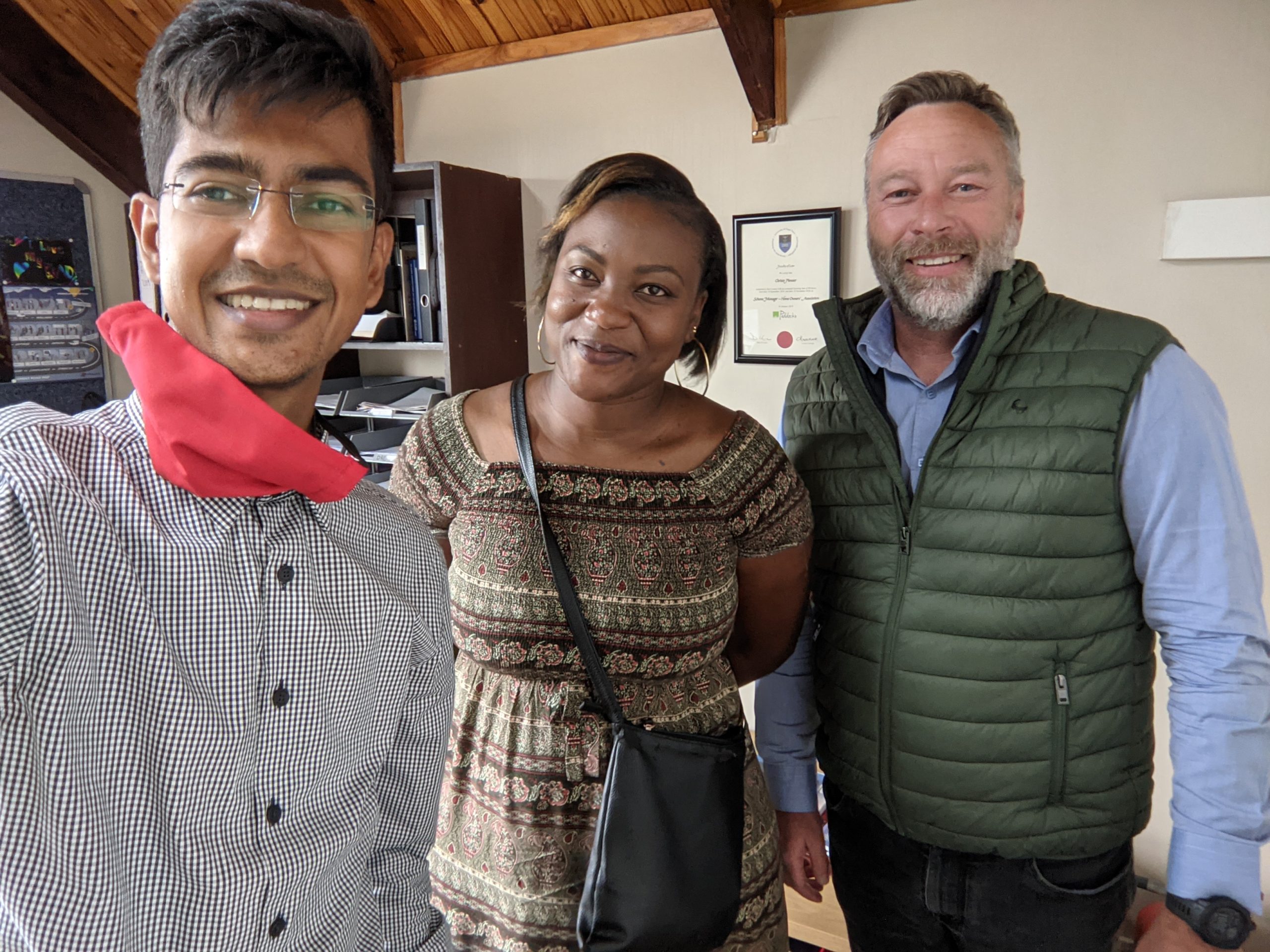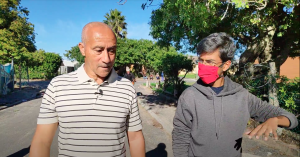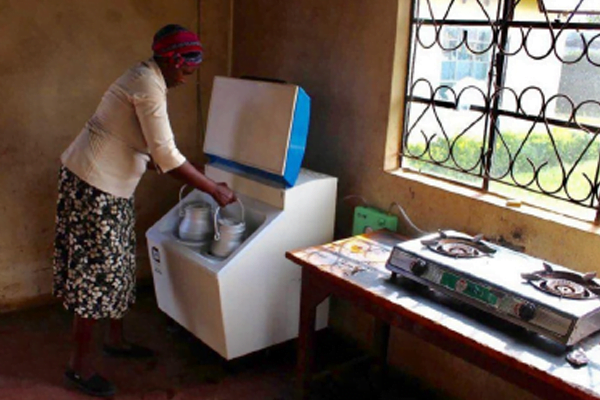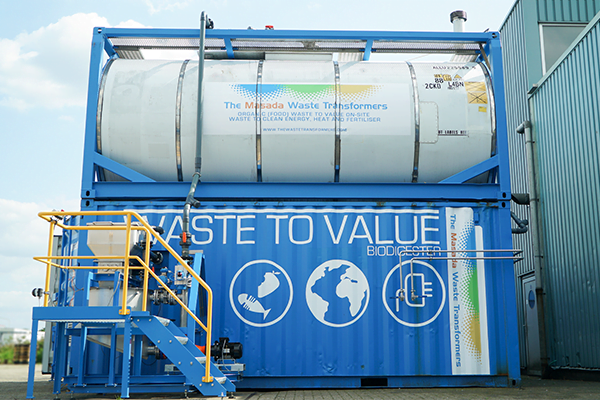
When Aman Baboolal was young, he heard a quote that said you should not ask someone what they want to be when they grow up, you should ask them what problem they want to solve. From that point, he began thinking about what problem he could solve and in what way he could contribute to society.
The South African energy crisis and its rolling blackouts began while Aman was in secondary school. Coming from a relatively privileged background, this was his first experience with interruptions in electricity. He became consumed by this complex problem and sensitised to how much he had taken basic service delivery for granted. This experience helped him realise that energy poverty had long been a problem for many of the communities around him.
Aman began learning more about the issue and charting a course toward a career in renewable energy. He studied chemical engineering at university, which provided him with a technical appreciation of energy in industrial processes. At the same time, he began to understand the energy crisis on a macro level: its negative impact on the whole economy. Using his education and skills, he began his journey to try to solve this problem.
I realized that load shedding was not only an inconvenience for residents – it also affected businesses and commercial industries, and was resulting in more unemployment and poverty. The country itself was being restricted by an inability to provide enough energy.
Aman’s first job after graduation was as a management consultant, where he sought to work on energy projects. During this time, he supported an African electricity utility which included strategies to increase revenue and improve the project management on the construction of a large power plant. Working with multiple stakeholders and seeing the full scope of activities – from construction to finance and operations – was influential for his perspective on the industry.
Consulting was great for building my skillset as a young professional. I was able to be on a construction site, to see the scale of it and the number of contractors and stakeholders that needed to come together around the same goal. This industry lens was useful in understanding the complexity of the challenges facing the energy sector.
In 2016, Aman moved to GreenCape, a leading economic development organisation in South Africa. He managed a World Bank-funded program to support cleantech start-ups via a B2B matchmaking service. Through this service, Aman interacted with over 100 companies, integrated the service with the South African Department of Trade and Industry, and supported the replication of this service in Ghana and Kenya. Aman also managed the Green Finance desk, and coordinated the development of green metrics for an impact investment fund called the “Green Outcomes Fund.” After being exposed to the innovation space, Aman decided it was time to be closer to the action.
Up until this point in my career, I would describe myself as ‘impact-adjacent’. I was working just on the edge of impact, supporting someone else who was delivering the impact. I was happy to support the sector, but it felt like the right time to join a company and actually be responsible for implementation and deliver that impact.
Aman joined Plentify, a smart energy tech start-up, in 2019 as a business development associate. Plentify builds an IoT device, called a HotBot, that can transform domestic water heaters into intelligent thermal batteries. Using machine learning, the controller learns the usage patterns of the household and only turns on the heater when it is needed and at optimal times for the grid. This acts as a cost-effective energy storage solution and helps manage the needs of the grid through load shifting and solar load building. In less than three years at Plentify, Aman has secured financing from EEP Africa and others for a pilot project in Cape Town, played a central role in developing a pipeline of deployments, and been promoted to Head of Partnerships.

There is definitely a need for innovation. Climate change is coming and it requires solutions we don’t have yet, at least not at scale. The innovation required in the space is really quite broad - not just technology, but also new business models and innovative and flexible finance solutions.
Even with a climate-tech boom, venture capital firms often fund pure software companies that can quickly grow to scale – Aman sees a global need for more patient capital and investments in hardware. Aman encourages private financiers to correct their perception of risk and add cleantech companies to their portfolio.

There is still a big gap for patient capital for early-stage hardware companies. The private sector can come to the party by increasing their risk appetite and invest in more solutions.
Aman was recently accepted into the MBA program at Harvard Business School, where he hopes to formalise his business knowledge and develop his leadership skills. He will continue specialising in clean energy and plans to return to Plentify or another innovative, breakthrough energy company after his studies. In the long run, Aman hopes to redefine the energy landscape in South Africa and help build a world that is abundant in sustainable, affordable and reliable electricity.
Aman's contribution at Plentify cannot be overstated. Since he joined as a founding team member, he's been instrumental in building our reputation and networks in the public and private energy sector. Furthermore, he's the ultimate team player, Swiss army knife and ``connective tissue`` within the company, taking on cross functional roles outside of his core mandate and comfort zone. Combined with his savvy business acumen, he's undoubtedly a rising energy leader, both within Plentify and on the broader African continent.
Kailas Nair – Cofounder and Chief Growth Officer, Plentify
Upscaling Biogas Milk Chillers for Dairy Farmers
Simgas develops a biogas-powered milk chiller for smallholder farmers in East Africa...
On-site Waste Solutions for a Circular Economy
The Waste Transformers' CEO on developing on-site solutions for organic waste...
Fighting Injustice by Reducing Climate Change
Profile of Esther Altorfer, East Africa Managing Director of Sistema.bio...





